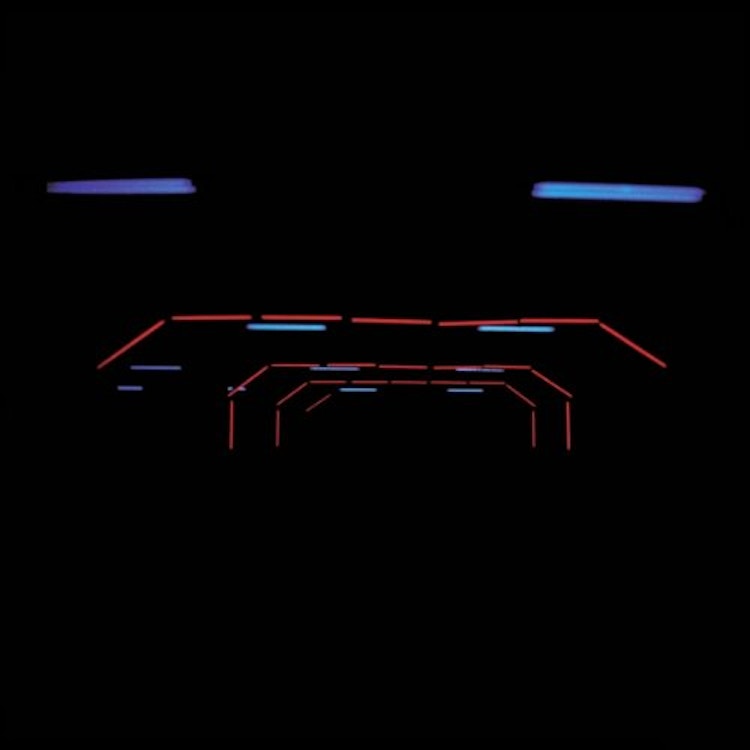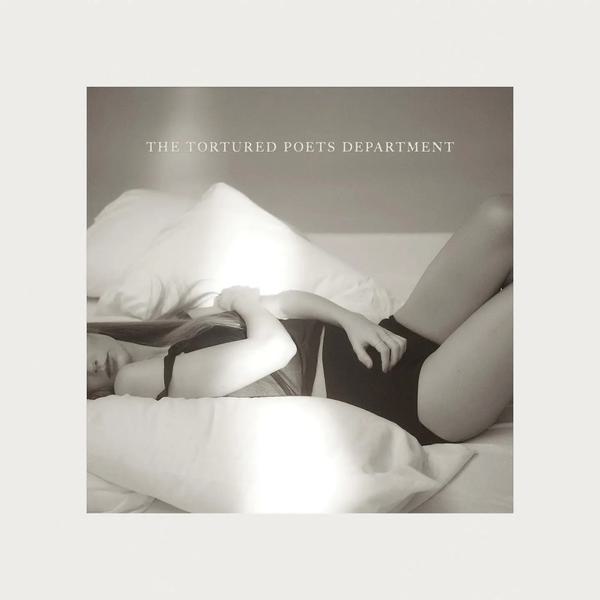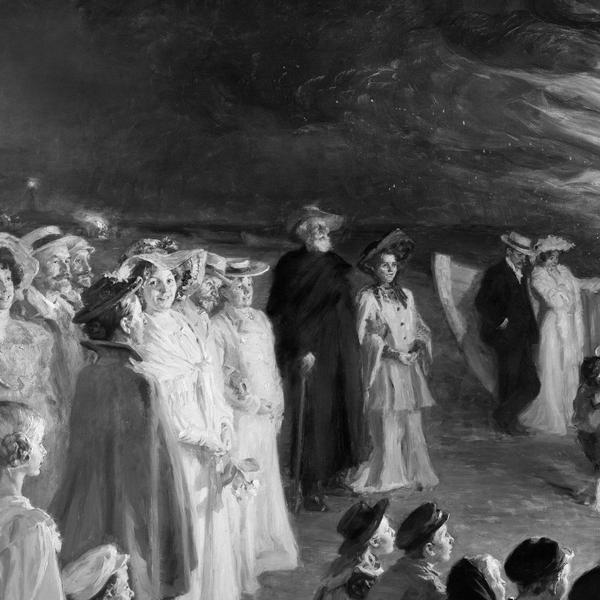"Joyland"

Joyland, the new album from Canadian electro project Trust, opens with shimmers of spectral keyboards, free of any grounding besides the subterranean baritone of singer/producer Robert Alfons. The song is called “Slightly Floating,” an apt name for the track’s ephemeral mood. Indeed, the song’s gauzy, lighter-than-air glimmering arrives as a red herring when taken in context of the rest of Joyland, an album otherwise singularly concerned with direct, compact club music. In an interview with Exclaim, Alfons attributed the propulsive energy of Joyland to a desire to capture the kinetics of the live show. In that sense the album absolutely succeeds, offering eleven variations on dance-floor digital aerobics, all of which inarguably operate as effective body music, even if they perhaps could have used some of the impressionist light touch of “Slightly Floating,” a song used more as credit-roll mood-music than a real part of the action. When Alfons commits fully to the energies of forward-motion, Joyland rises and falls with the opportunities for melodic brilliance that Trust either grasps hungrily, or passes by, uninterested.
“Geryon” begins the album in earnest, skittering along tiles of pointillist synthesizers and texture-rich keyboard lines. Most of the song thrums past in a steady four-on-the-floor march, flecked with echoing percussion clatters and more of Alfons’ sing-speak bass voice. The track’s verses capture some effective energy in the way offsetting clean and corroded synthesizers warp around one another. Elsewhere a short passage in which everything recedes but sheets of high-end computer harmony are lovely. Otherwise there isn’t much melody or structural movement to grasp onto; “Geryon” is near-colossal in the ways in which it commits to an absolutist techno beat and ends once it has spent its allotted time.
“Capitol” does more with the same pieces, beginning with a false front of acidic keyboards and a Yeezus-like shriek before smoothing out into wide-open, mid-tempo synapse pop. The song’s spacious, moody verses are compelling and drama-filled, feeling more like proper pieces of a song than similar moments on “Geryon.” Even better is the bright, upward-arching chorus, a fireworks display of percolating keyboards that bursts into a giddy major key, brightening the verse’s shadows. That the hook on “Capitol” is sung in a nervy middle-register instead of the more inaccessible baritone that carries through most of Joyland partially explains why it is so quick to connect, why “Capitol” feels like the type of song for which people download iPhone apps capable of sourcing overheard songs. One could imagine catching a chunk of “Capitol” playing in a mall or a café or a university dining hall and falling for its compelling mood-swings and gracious choruses immediately.
Even better is the album’s titular track, a swiftly-moving dispatch of soda-fizz pop music that lightens the album’s early moodiness considerably. Pairing trickles of keyboard glitter to an ebullient female voice and a monster of a crowd-pleaser chorus, “Joyland” chases its title with gusto, carving its computerized soundscape into a pleasure-principal machine, a three-minute engine fueled by an undeniable hook. That the song’s sonics, which pair those twinkling keys to deep, groaning bass, are remarkably complex for what could have been a Whitney Houston A-side in 1987 betrays the album’s most promising streak, whereby Robert Alfons doesn’t treat ideas and motion like either/or exclusives. Elsewhere, “Icabod” begins with the single-mindedness of “Geryon,” but benefits from an increased attention to flavor and variation. Where “Geryon” seemed largely satisfied to thump in workman-like simplicity, Icabod offers Alfons’ best melody, a David Bowie-esque performance of bravura dramatics whose elemental catchiness sticks with you. The cluttered sonic field drops away for scattered stretches, teasing thunderous Skrillex-style impacts, but instead returning to those long stretches of slinky melody, drawing attention to just how lovely a song Alfons’ can craft out of these plastic pieces. The song’s outro, a lovely span of computer-treated falsetto literalizes the beautiful ways Joyland, at its best, runs the human through the electric.
Unfortunately, the endorphin bursts of “Joyland,” “Icabod,” “Capitol” don’t do any favors for the album’s more pensive moments, which flirt with dullness in the wake of such Technicolor fantasias. “Are we Arc?” offers a rich melody, and its elastic keyboard surroundings are some of the albums best aural marvels, but at four-and-a-half minutes, it feels like Joyland has misplaced its priorities in devoting an entire minute extra to these down moments while cutting a marvel like “Joyland” so severely short. “Four Gut” similarly entertains with attitude and atmosphere, but it’s automaton beat, which never strays from bass-snare singularity, can’t help but feel a bit monochromatic once one realizes Alfons has a “Capitol” in him. Things work out better when those darker moments go for alluring tactility rather than dour gloom, as on late highlight “Rescue, Mister,” which oscillates between an almost New Order-esque digitized post-punk verse and an infectious pop-smart chorus. Tellingly, that rich pallet is given a charge by the inclusion of a female alto, allowing the choruses to cut like a laser through the murk of Alfons’ bottom-end verses.
It is interesting to consider that this album was released on Arts & Crafts, a Canadian label most famous for releasing records by Broken Social Scene, Feist, and Stars. For most of the label’s decade-long run, the Arts & Crafts roster made its bones by finding room for pop fundamentals in idiosyncratic indie art rock. So while Trust doesn’t sound much like the organic majority of Arts & Crafts roster, the project’s approach, which also digs for pop, but under digitized rubble, is right at home. It’s lucky for us that Joyland so often yields gems amongst the heavy strata of computerized monoliths.
Get the Best Fit take on the week in music direct to your inbox every Friday

Taylor Swift
The Tortured Poets Department

Chanel Beads
Your Day Will Come

Lucy Rose
This Ain't The Way You Go Out





